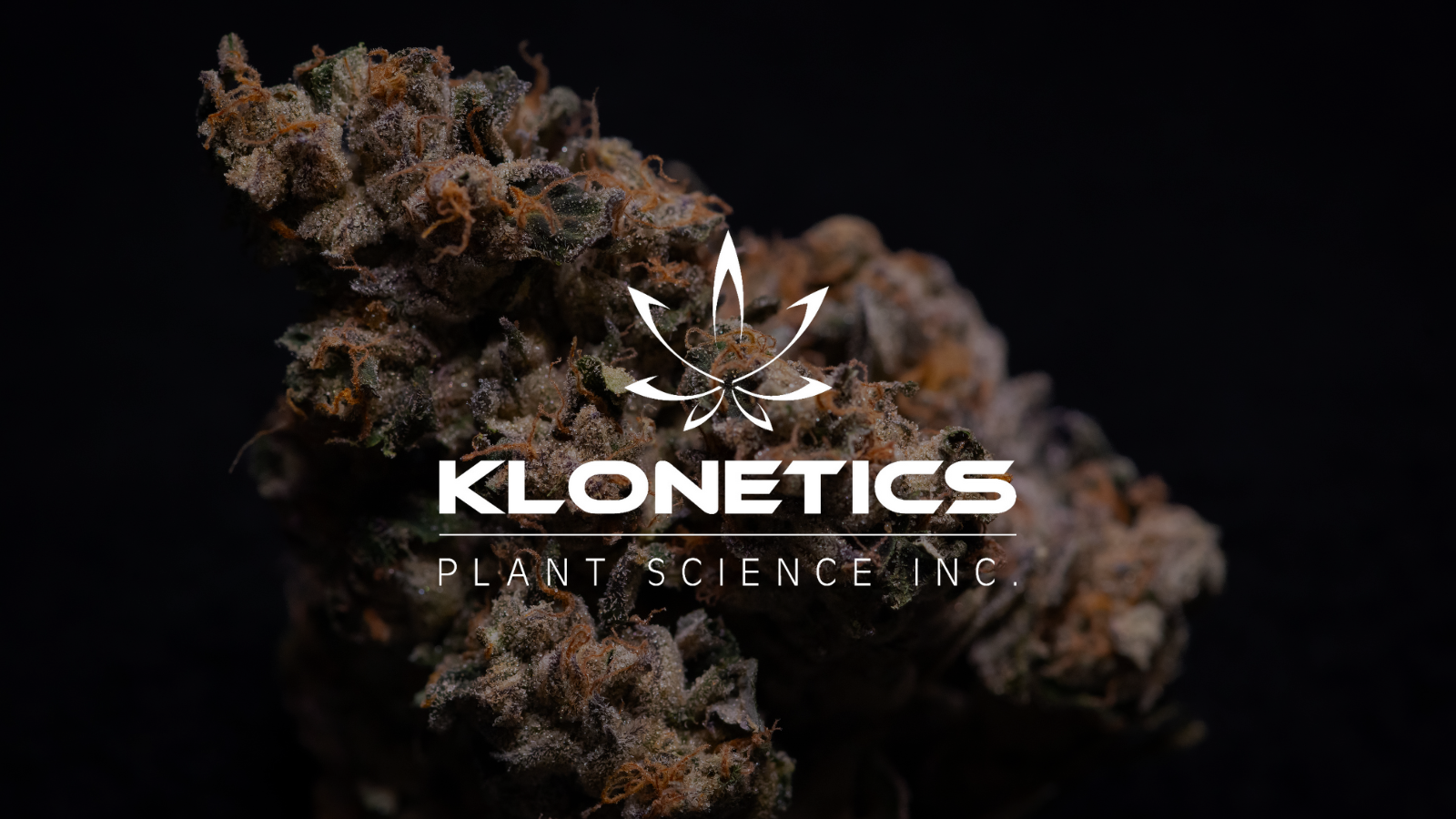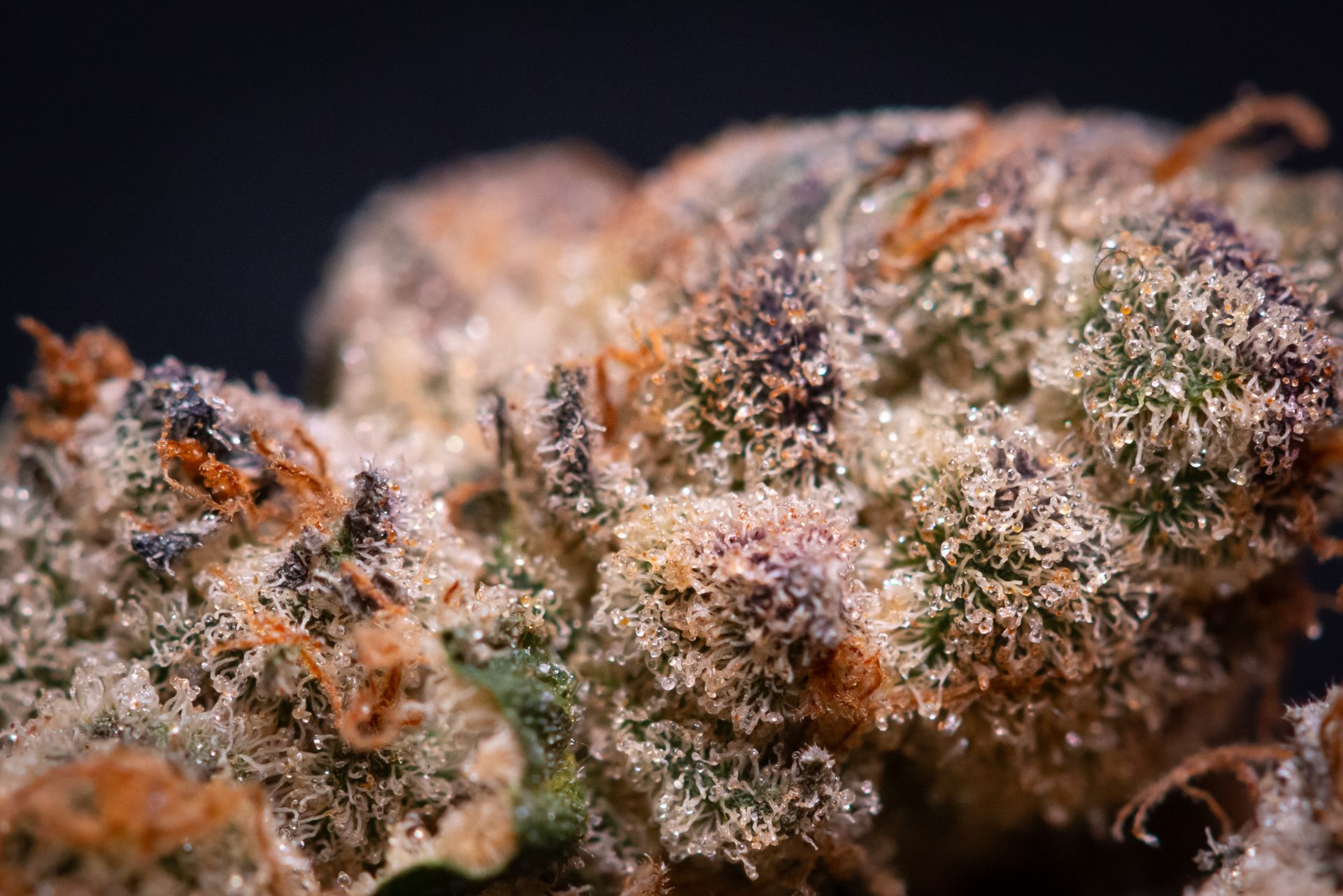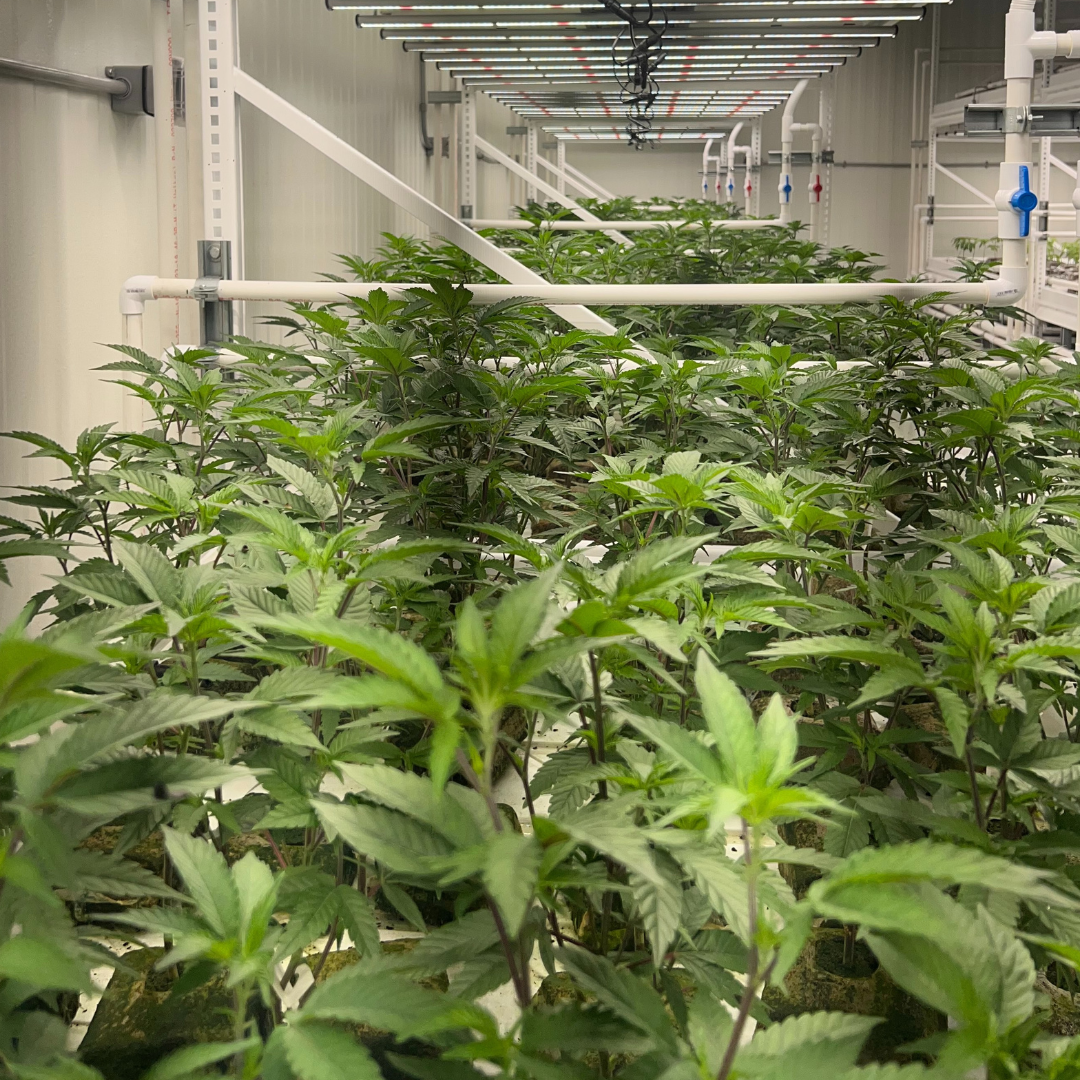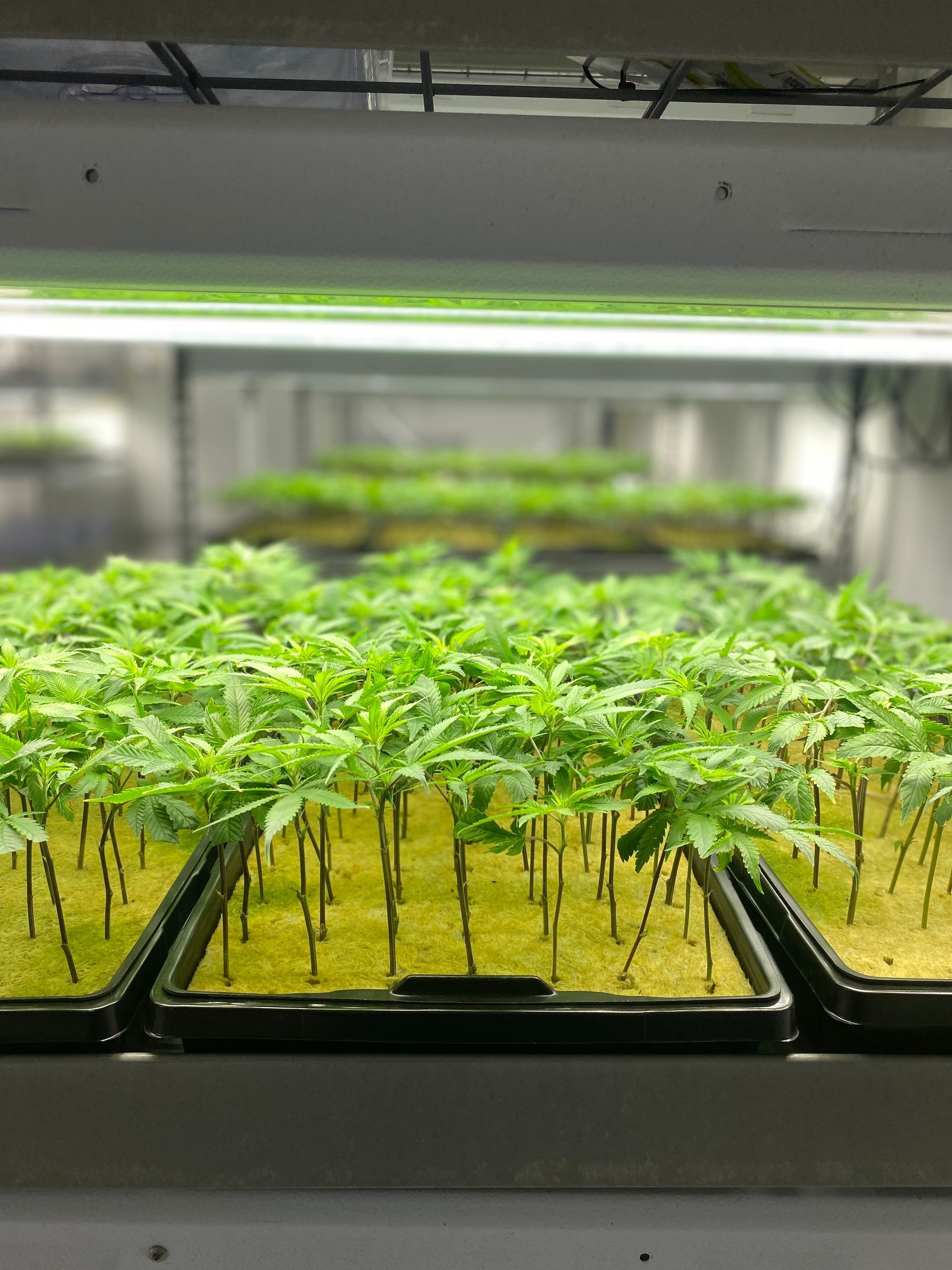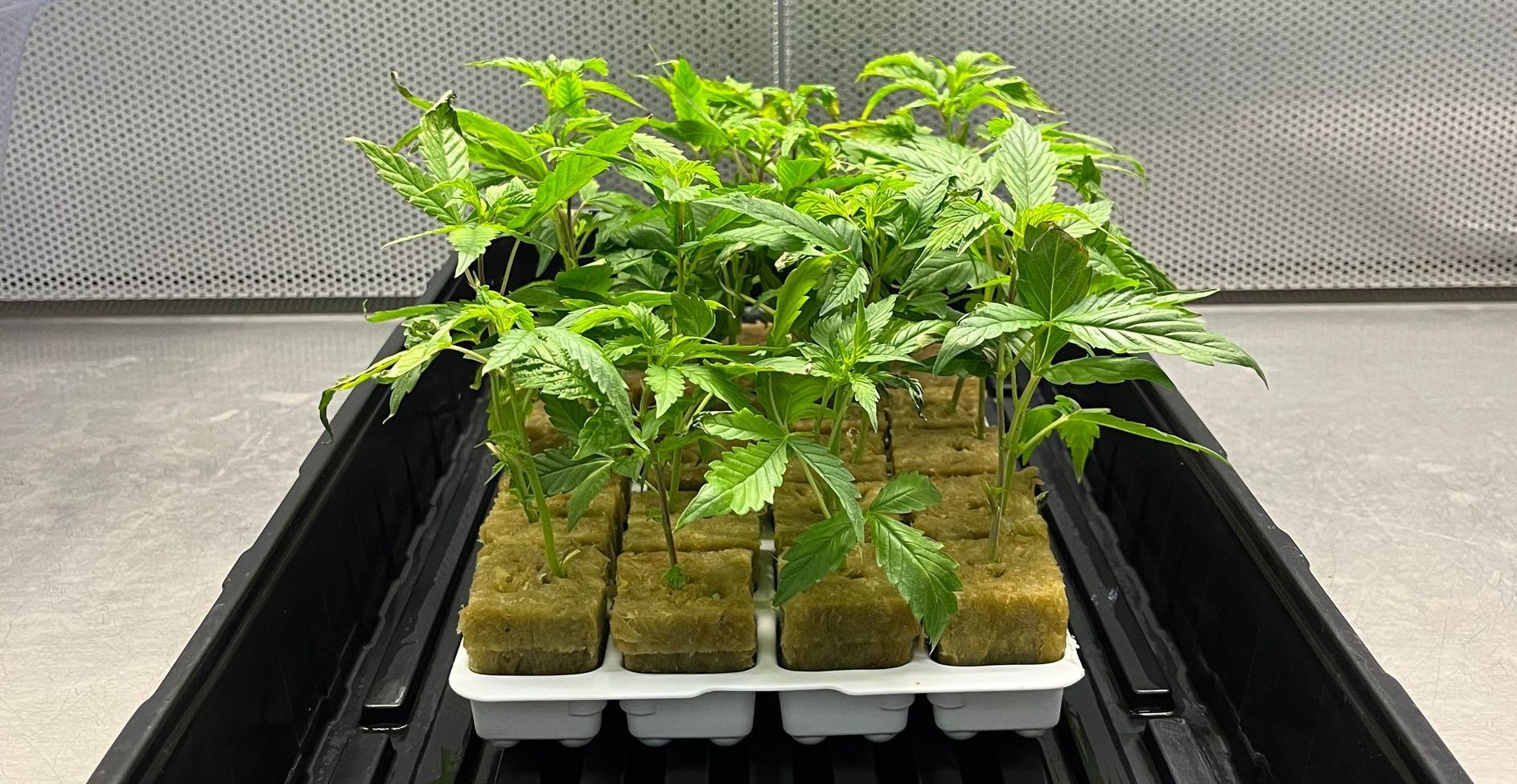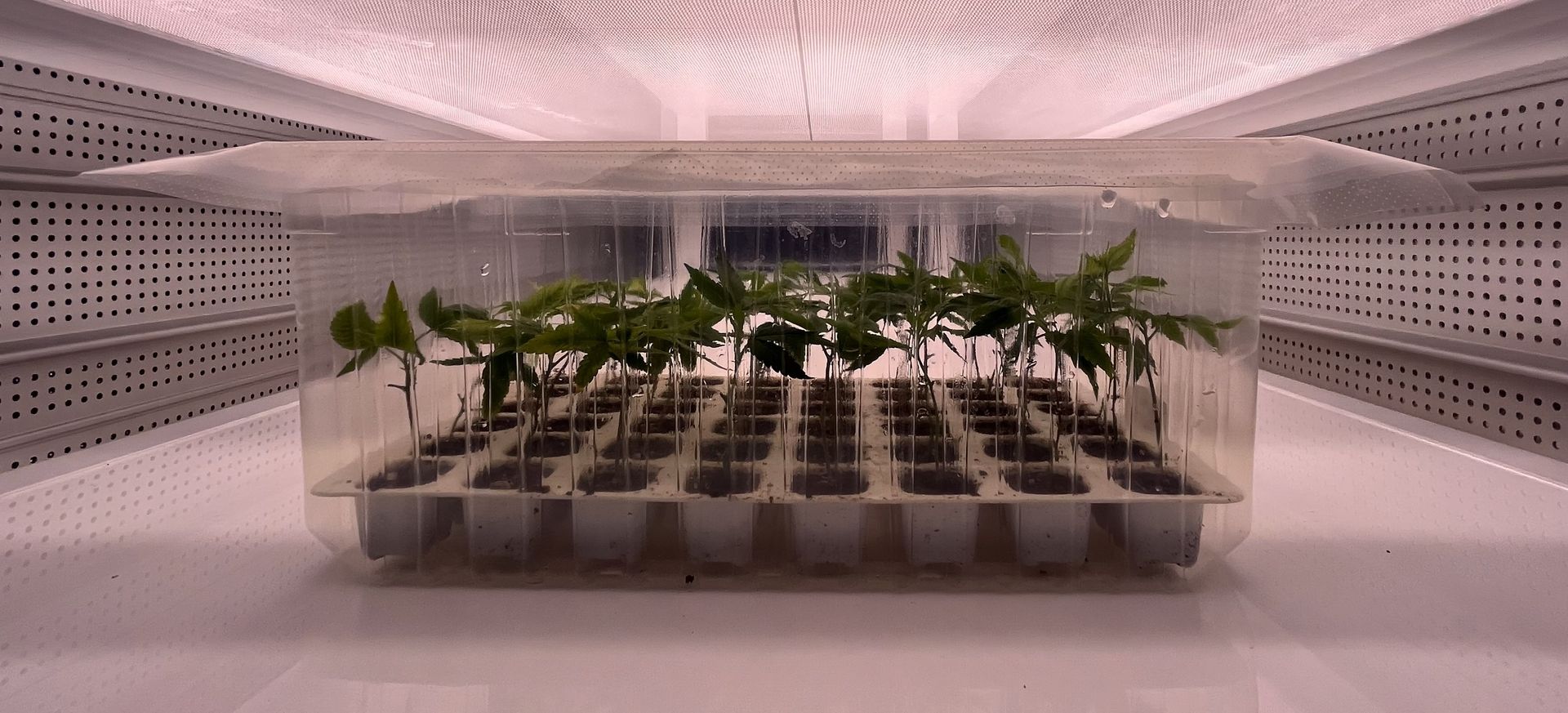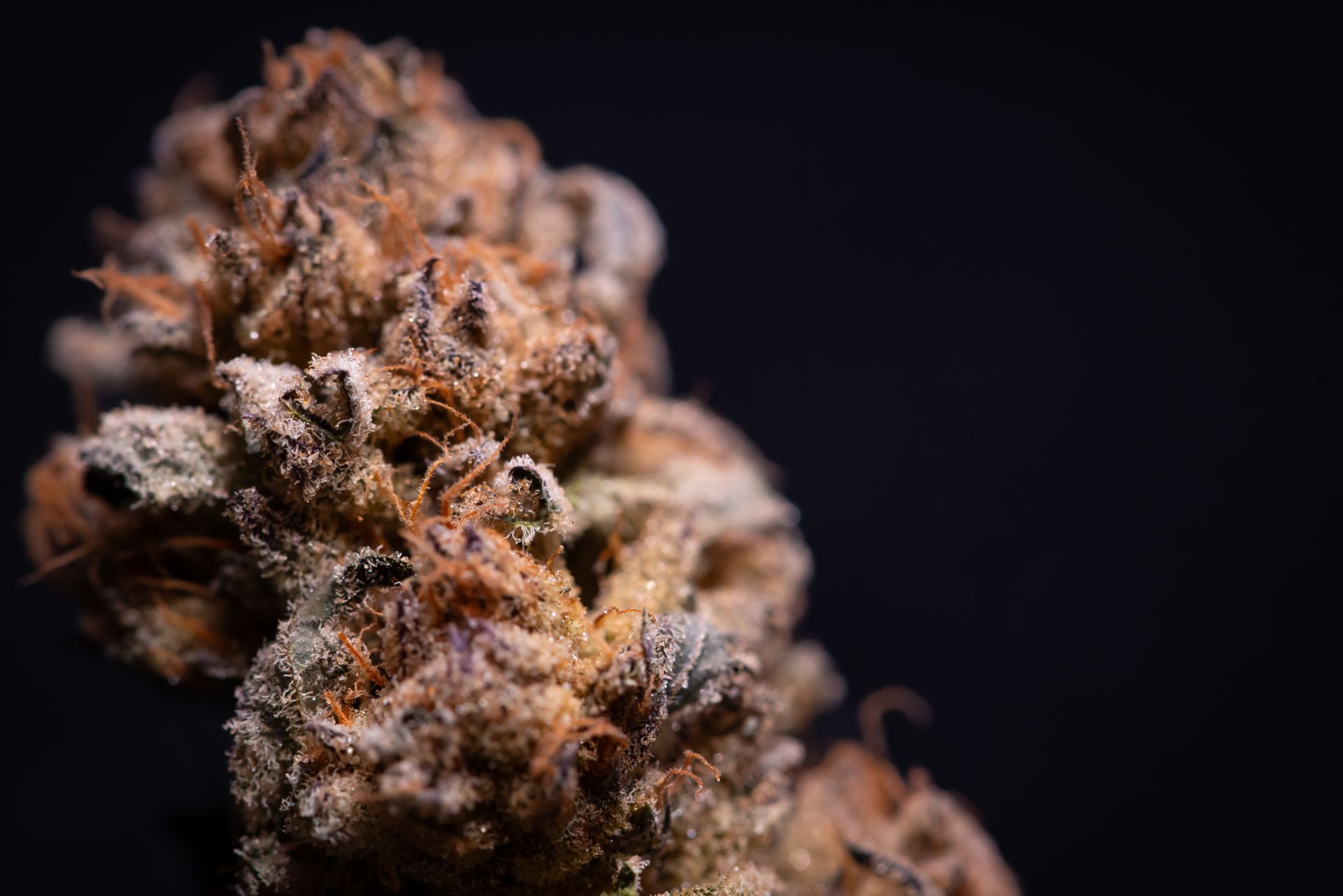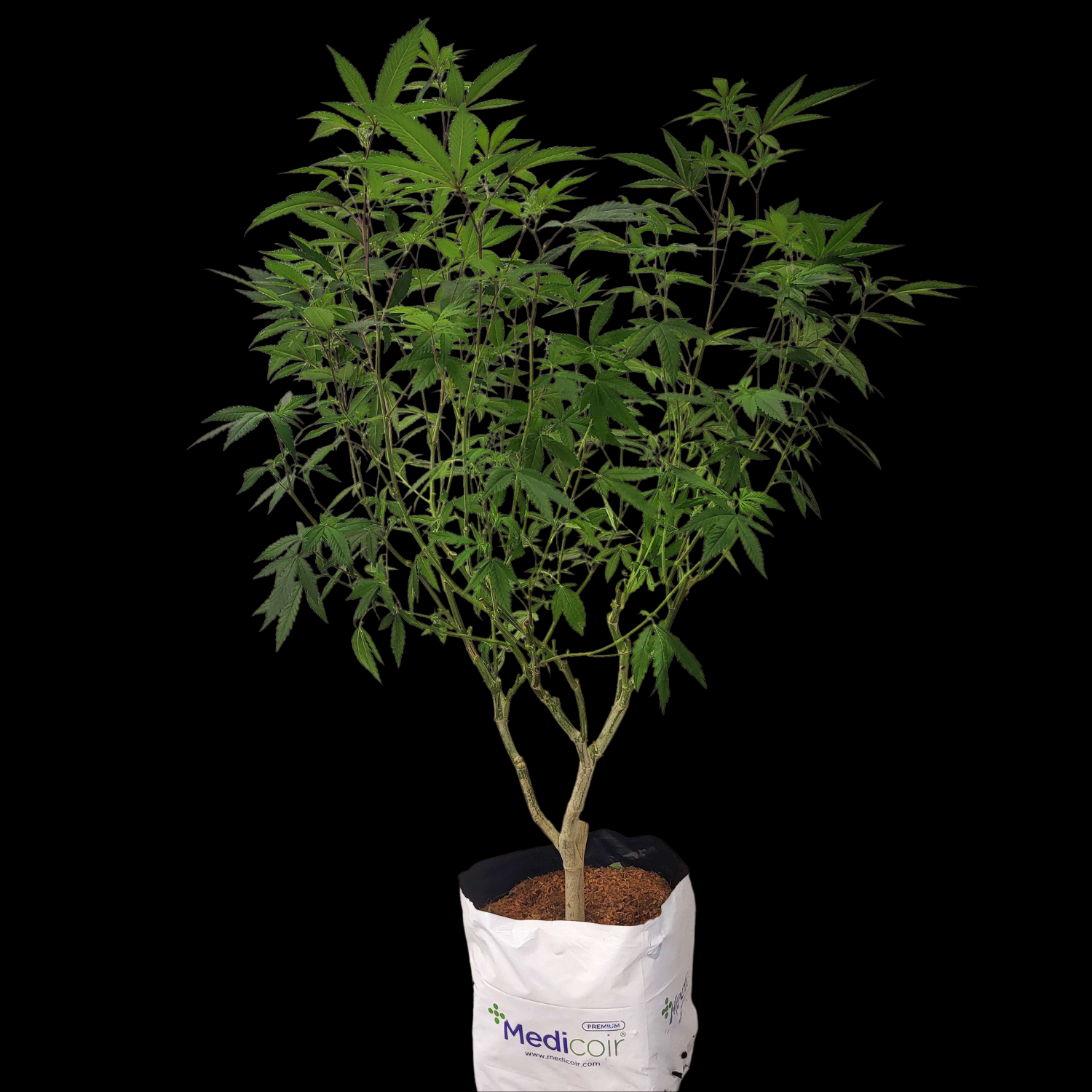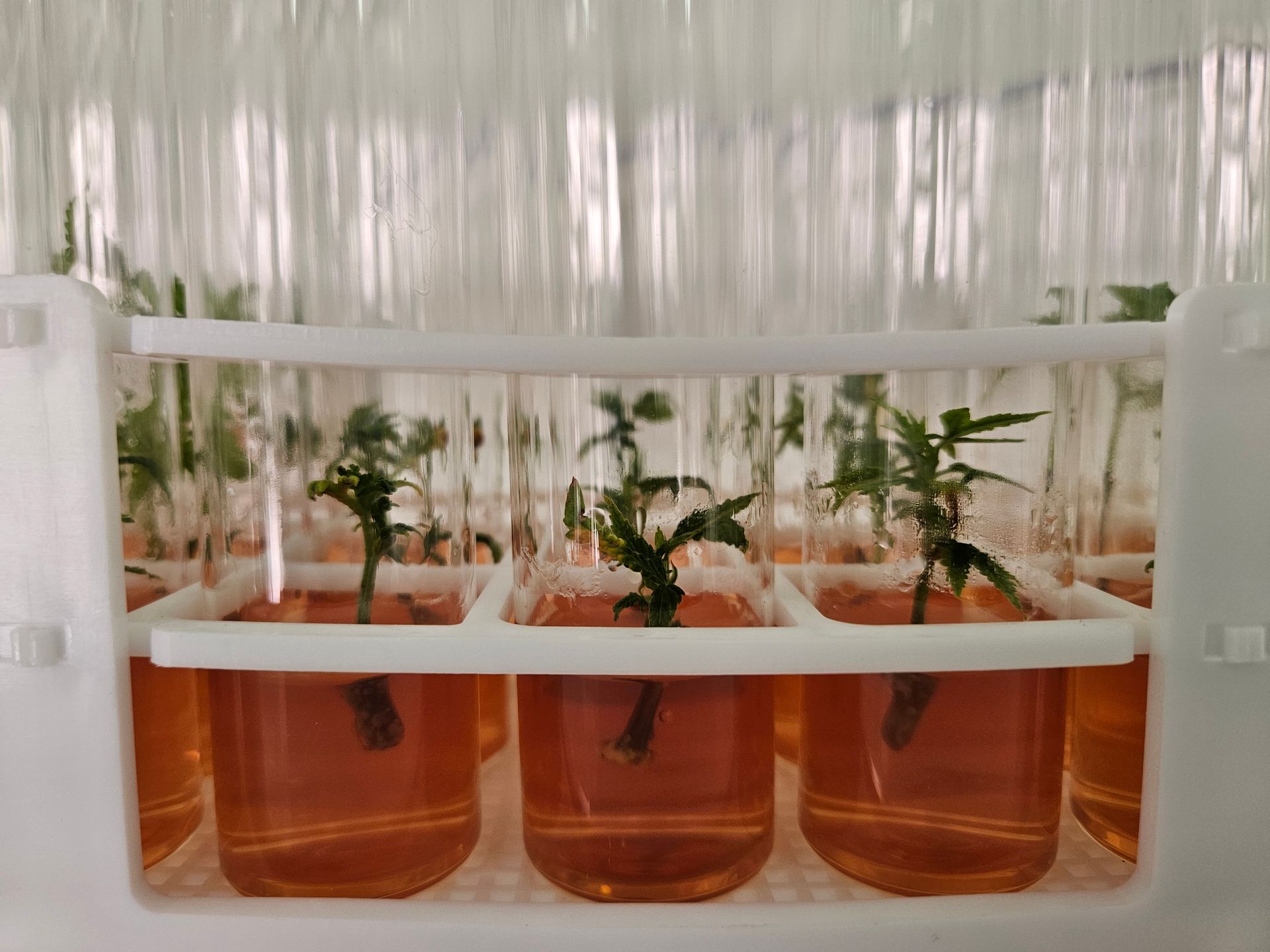Cannabis Tissue Culture Techniques: Growing Basics
Cannabis Tissue Culture Techniques: Growing Basics
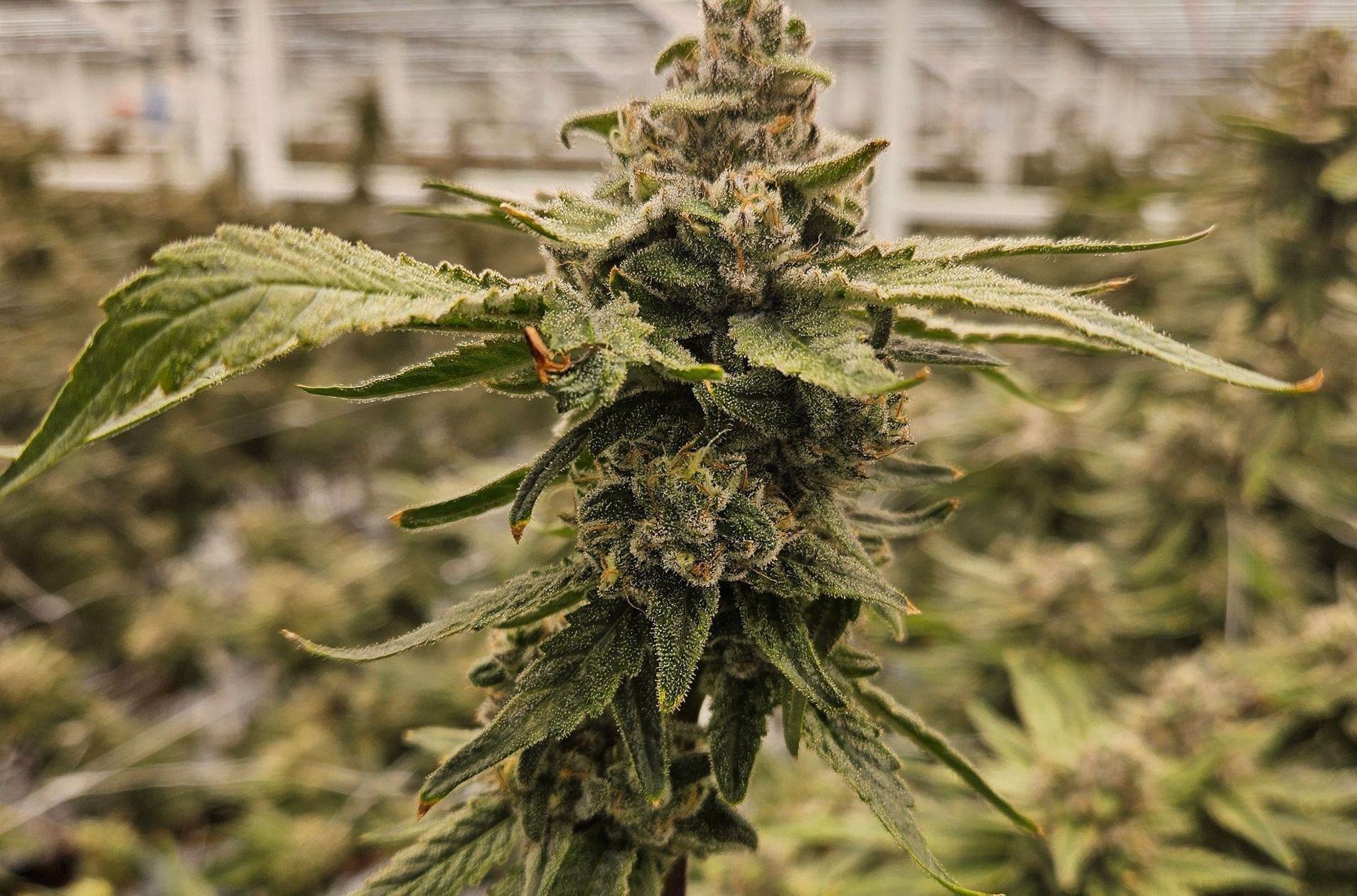
Did you know that tissue culture techniques can increase the number of cannabis clones from a single cultivar by up to 5 times in just one month? This revolutionary propagation method is transforming the way commercial cannabis producers approach their operations, providing unparalleled opportunities for genetic preservation, clean cultivation, and efficient pheno hunting.
At Klonetics Plant Sciences, we are at the forefront of this innovative technology, offering advanced tissue culture solutions that empower cannabis growers to elevate their cultivation game. By leveraging tissue culture techniques, our clients can establish small-scale labs within their existing facilities, producing disease-free, vigorous clones that maintain consistent phenotypes and maximize yields.
Key Takeaways
- Tissue culture techniques can increase clone production by up to 5 times in a month
- Tissue culture provides a sterile environment for thorough plant cleaning and efficient pheno hunting
- Tissue culture clones are disease-free, more vigorous, and consistent in phenotype
- Klonetics Plant Sciences offers comprehensive tissue culture services and solutions
- Tissue culture can help cannabis growers maintain a clean genetic library and reduce reliance on mother plants
Understanding Cannabis Plant Biology
Cannabis, belonging to the Cannabaceae family, is a unique plant with diverse characteristics. These dioecious plants have male and female organs on separate individuals, exhibiting distinct features based on their sex. The cannabis plant family is renowned for its versatility, with over 560 secondary metabolites, including more than 115 cannabinoids.
Cannabis Plant Family and Characteristics
Cannabis can be classified based on its THC content, with anything below 0.3% considered hemp and 0.3% or more classified as marijuana. The global value of CBD alone is projected to reach $16 billion by 2025, highlighting the growing demand for this versatile plant. While cannabis plants are predominantly dioecious, the ability to achieve selfing has enabled the production of feminized seeds, a crucial advancement in modern propagation methods.
Traditional Growing Methods vs Modern Approaches
Historically, cannabis cultivation has relied on traditional methods such as seeds and cuttings. However, these approaches pose challenges for commercial growers, including susceptibility to fungal and viral diseases. In fact, studies have shown that up to 90% of California's cannabis crops were affected by the devastating Hop Latent Viroid (HpLVd).
The Need for Advanced Propagation Methods
The legalization of the cannabis industry in 2014 has revitalized research into its medicinal, agronomic, and biotechnological aspects. As the demand for improved genetics and cultivation techniques grows, the need for advanced propagation methods, such as cannabis plant biotechnology and cannabis propagation methods, has become increasingly evident. These innovative approaches offer solutions to disease control, space constraints, and genetic preservation, positioning the industry for a sustainable future.
Cannabis Tissue Culture Techniques
In the rapidly evolving world of cannabis cultivation, sophisticated techniques like cannabis meristem culture, cannabis regeneration protocols, and cannabis somatic embryogenesis are gaining prominence. These advanced propagation methods offer invaluable advantages to cannabis growers, allowing them to efficiently produce disease-free, genetically uniform plants while optimizing limited cultivation space.
Basic Principles of Plant Tissue Culture
The foundation of cannabis tissue culture lies in the principle of totipotency – the ability of plant cells to regenerate into complete, genetically identical individuals. By carefully selecting and sterilizing plant nodes, we can initiate cultures in a controlled, sterile environment, then manipulate growth media and environmental conditions to facilitate rapid multiplication, rooting, and acclimatization.
Essential Laboratory Requirements
Successful cannabis tissue culture requires a specialized laboratory setup, including laminar flow hoods, autoclaves, pH meters, and analytical balances. These tools, coupled with rigorous sterile protocols, ensure the prevention of microbial contamination, a critical factor in maintaining the genetic integrity of the cultures.
Sterile Working Conditions and Protocols
Maintaining a sterile working environment is paramount in cannabis tissue culture. Strict aseptic techniques, HEPA-filtered air, and thorough decontamination procedures are essential to eliminate the risk of unwanted pathogens compromising the delicate plant material. By adhering to these protocols, we can effectively combat the high prevalence of diseases like Hop latent viroid, which affects up to 90% of cannabis crops in some regions.
Klonetics Plant Sciences is at the forefront of advancing cannabis cultivation through innovative tissue culture techniques. Our comprehensive services, including cold storage and liquid nitrogen preservation, ensure the long-term storage and genetic integrity of your valuable cannabis cultivars.
"Cannabis tissue culture offers a game-changing solution for cultivators seeking to optimize their operations and maintain the highest genetic purity of their crops."
Benefits of Tissue Culture in Cannabis Production
Tissue culture has emerged as a transformative approach in the cannabis industry, offering numerous advantages over traditional propagation methods. By leveraging advanced cannabis micropropagation media and cutting-edge tissue culture techniques, growers can unlock a world of benefits that enhance their productivity and profitability.
One of the primary advantages of tissue culture is its ability to produce disease-free, genetically consistent plants. The sterile, controlled environment of the lab eliminates the risk of viral or pathogenic infections that can plague traditional cloning methods. This results in cannabis tissue culture advantages such as increased vigor, improved yield potential, and enhanced pathogen resistance – all of which contribute to the overall health and performance of the crop.
"Tissue culture enables efficient pheno hunting through genomic selection, reducing time and resources needed for cultivar development."
Beyond disease mitigation, tissue culture also empowers growers to streamline their cultivation operations. By preserving valuable cultivars in long-term storage, growers can maintain a diverse genetic library without the space requirements of traditional mother plants. This flexibility allows for rapid scaling and the introduction of new strains, catering to the constantly evolving preferences of the cannabis market.
Ultimately, the adoption of cannabis tissue culture techniques by Klonetics Plant Sciences and other industry leaders has ushered in a new era of cannabis production. By harnessing the power of this innovative approach, growers can unlock a future where consistent, high-quality cannabis is the norm rather than the exception.
Step-by-Step Propagation Process
The cannabis tissue culture process begins with the careful selection and preparation of explants, typically shoot tips or nodes. These explants are the starting material for the in vitro propagation, and their health and viability are crucial to the success of the entire process. Klonetics Plant Sciences, an industry leader in cannabis tissue culture, has developed precise protocols to ensure optimal explant selection and preparation.
Explant Selection and Preparation
Klonetics' experts meticulously select the healthiest and most vigorous plant material, ensuring that the explants are free from any visible pests or diseases. The explants are then subjected to a series of sterilization procedures to eliminate potential microbial contamination, a critical step in establishing a sterile, controlled environment for the tissue culture process.
Growth Media Composition
The composition of the growth media is paramount in cannabis tissue culture. Klonetics utilizes a customized blend of macro and micronutrients, vitamins, and growth regulators specifically tailored to the needs of the cannabis plant. The team draws from a wealth of research, including the well-known Murashige and Skoog (MS) formulation, to create an optimal medium that supports the rapid proliferation and healthy development of the cannabis explants.
Environmental Control Parameters
Precise control of the environmental conditions is essential for the successful propagation of cannabis plantlets through tissue culture. Klonetics maintains strict temperature, humidity, and lighting regimes within their state-of-the-art growth chambers, ensuring that the delicate explants receive the perfect conditions for optimal growth and development. This attention to detail enables the team to produce robust, genetically uniform plantlets that can be successfully acclimated to the outdoor environment.
By following these comprehensive cannabis tissue culture protocols, Klonetics Plant Sciences is able to deliver high-quality, disease-free cannabis plantlets that meet the exacting standards of their clients, whether they are commercial cultivators or home growers seeking to preserve the genetics of their prized cannabis strains.
FAQ
What is cannabis tissue culture?
Cannabis tissue culture is a clonal propagation method performed in controlled aseptic environments. It involves selecting explants from disease-free mother plants, sterilizing them, and placing them on sterile nutrient media. The process includes initiation, multiplication, rooting, and acclimatization stages.
What are the benefits of using tissue culture for cannabis production?
Tissue culture offers numerous benefits for cannabis production, including disease-free plants, increased vigor, and genetic consistency. It addresses issues of viral load and plant health common in traditional propagation methods. Tissue culture enables efficient pheno hunting through genomic selection and allows for long-term genetic storage, preserving valuable cultivars.
What are the essential laboratory requirements for cannabis tissue culture?
The essential laboratory requirements include laminar flow hoods, autoclaves, pH meters, and analytical balances. Sterile protocols are crucial to prevent contamination. The technique requires specialized knowledge for troubleshooting media compositions, as about 20% of cannabis cultivars may need customized recipes for optimal growth.
How does the cannabis tissue culture process work?
The process involves carefully selecting and preparing explants, typically shoot tips or nodes. Growth media composition is critical, containing macro and micronutrients, vitamins, and hormones specific to cannabis needs. Environmental control parameters include light, temperature, and humidity, all precisely managed in sterile growth chambers. The process involves multiple stages: initiation, multiplication, rooting, and acclimatization.
What are the key considerations in cannabis plant biology for tissue culture?
Cannabis belongs to the Cannabaceae family, exhibiting dioecious characteristics with male and female organs on separate plants. Traditional growing methods include seeds and cuttings, but these pose challenges for commercial growers. Cannabis plants are susceptible to fungal and viral diseases, with 90% of California crops affected by HpLVd. Advanced propagation methods like tissue culture offer solutions to disease control, space constraints, and genetic preservation.


